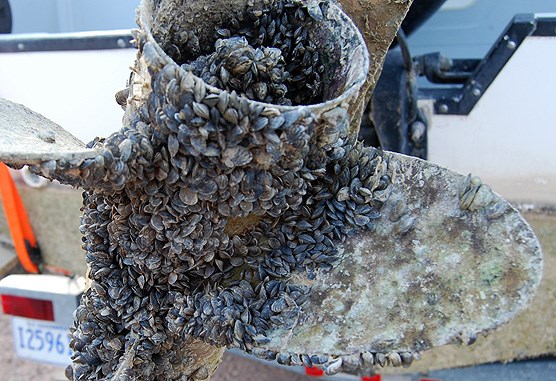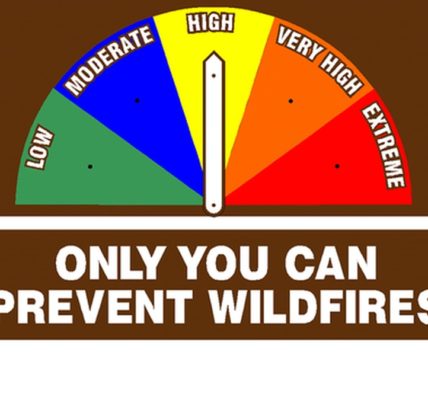
• Watercraft are required to stop for inspections.
Perhaps you are a seasoned water recreationist who takes advantage of the stellar opportunities in the region for enjoyment on a sunny day, or perhaps you are a brand-new boat owner who is ready to push off into Wyoming’s waterways. In either case, residents and visitors alike need to be aware of the state’s battle against Aquatic Invasive Species (AIS) and how they can cause big problems for your favorite lake.
In particular, the zebra quagga mussel is a freshwater mussel that filter plankton out of the water which depletes it as a food source for native species. Large colonies can take over fish spawning areas and clog water intake lines because of their dense colonies. They latch onto boats and can easily spread between bodies of water. It is for this reason that Wyoming has implemented the AIS check stations which valley residents have likely seen at the port of entry outside of Alpine and at the top of the Salt River Summit south of Afton. These stations are there to inspect boats and other watercraft to make sure these mussels and other problems stay out of area waterways.
Yellowstone National Park is beginning new, stronger measures in this regard starting May 25 which will require all sailboats and some complex motorized boats — those with inboard, inboard/outboard and inboard jet motors — to undergo a mandatory 30-day dry period before entering park waters. In addition to the dry period, any vessels previously contaminated by mussels are also banned from the park.
“You’ll start seeing the check stations at the borders and check stations,” said Wyoming Game and Fish Director Brian Nesvik in a recent interview with SVI’s Weekday Wake-up radio program. “We are trying to be [free] of quagga zebra mussels. Those critters in our water make for a really bad day. Once you have them you really don’t get rid of them. They cost a lot of money to deal with and address each year.”
According to Nesvik, the impact of the mussels aren’t just limited to area fish.
“They can have impacts on hydroelectric activity in dams, irrigation water systems, you name it,” he said. “Anything that touches water, those things can have a negative impact so we are continuing to have that defensive posture that we do to try and keep those things out of our state and those AIS stations are a first stop.”
Boat owners may be surprised to know that an inspection can be required even if their boat hasn’t been in the water.
“I would like to remind folks that even if you take your boat from Wyoming over to have it serviced out of state, if it comes back across the border it has to be inspected by an AIS inspector in Wyoming before it can be put on the water,” Nesvik warned. “Certainly any boats that come from any other state that have touched the water have to be inspected as well.”
Nesvik advised there are steps watercraft users can do to help things improve.
“The number-one thing people can do is when they pull their boat out of the water is make sure they are drained and cleaned and dry,” he concluded. “Those larva can’t survive in a dry environment.”





